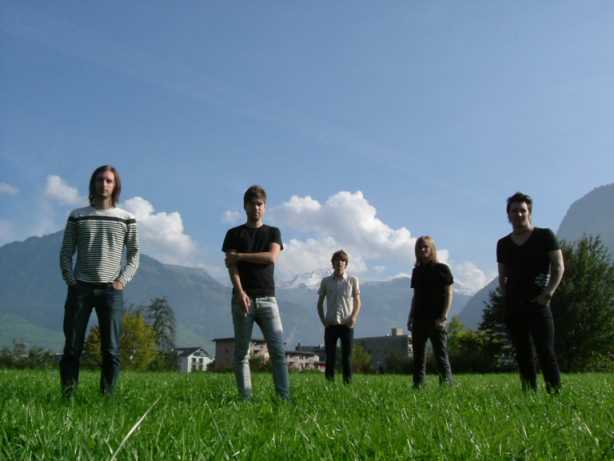Interview

(Progressive Newsletter Nr.54 01/06)
excerpts from an interview with Johann Lundström (Drums, Background Vocals)
Like all bands today we listen to a lot of music. Itīs always difficult to say what have influenced us most. Yet, we would like to mention some of them, so that journalists and intervjuers donīt get the oppurtunity to manufacture our influences. But letīs start with what weīre not influenced by: Yes, Jethro Tull, Änglagård, Coldplay and Landberk. Instead we try to find other interesting things to listen to, such as Breakout, Birth Control, Bo Hansson, Augusto Martelli, Scott Walker, Walter Kubiczeck, Berits Halsband... Mainly you hear this on "Rhododendron", "The marriage of Maria Braun", "Staden rämnar vid fågelns skri" and "The carafe (Part II)". Whatīs also important is that not only music affects us as a band. For example "Heading for Golgata" is mainly influenced by swedish author Pär Lagerkvist. We wanted to write a song about someone unable to have religious believes, in a similar way to Lagerkvist. The music for this song is pretty much ripped from "Everyoneīs been burned" by the Birds, but we play it with a completely different approach. We were fascinated by the result: a disco kind of feeling fused together with a reflection of Jesus which could have come from one of Lagerkvists characters.
Why did you release the new album "II" and the EP "Killer couple strikes again" at the same day and were do you see the differences in these two recordings?
We recorded everything at once. Thus, you donīt see any difference. We released it on the same day just like Guns 'n Roses released the "Use your illusion" albums on the same day.
How did you decide which song should be released on the album or on the EP?
We tried to make the songs fit with each other. Tried to make the album and the EP as good as possible as a whole.
II seems to be bit more away from the vintage progressive rock vein of the first album. What were the reasons for this musical development and the use a wider range of different styles?
Itīs easy to feel trapped when you do prog. A couple of years ago we felt that doing crazy hardcore prog was the freest way for us to make music. We could do anything we wanted. Today we donīt feel this. Today we feel more free when we mix different kinds of genres. And we have enough integrity to do this. We donīt feel that we need to satisfy anyone with our music. We wanted to think differently when we made "Liquid Scarlet II" and appearenty there are people who like it. But we are a progband. We will always have progblood pumping heavily through our veins.

Were there also some expectations for the second album from outside the band that did influence you?
Yes, there were expectations coming from outside the band. Our label told us that we should make a couple of longer songs. So we did. But for these songs we used stuff that we allready had been working on, we just hadenīt finnished or recorded it then. It felt very good to make something out of this and to release it. Some of us think that these songs are actually the best ones of the album. About "The carafe (Part II)": With this song we wanted to do some classic prog, but with a more psychedelic and improvisational feel to it. The lyric is about a man who becomes more and more obsessed with a carafe, and we recorded a lot of the vocals on this one while Markus was drunk. To get the right insane and disturbed feeling. About "Rhododendron": We listened very much to "Low" by David Bowie and we talked about making something that should be based on just sounds. We thought it would be a good variation, a good way of trying new directions in our songwriting. The song is complex and it deals mainly with consciousness and contemporaneity. Thatīs why the changings of the mood within the song is so drastic. It was quite difficult both to write it and to record it. We finnished much of it in the studio.
How important are melodies and vocal lines for you, as especially on II a lot of vocal harmonies and great hooks can be found?
Itīs very important. We usually write the lyrics first and then try to write music to fit the vibe of the words. We try not to do instrumental parts that aren't relevant to the story or theme of the lyrics.
If you had the chance to release your music on a bigger label for a wider audience, would you be ready to make any compromises concerning your music stylistically wise?
No. Yet, if the labelīs got ideas that we like we are willing to make something out of it. But we donīt do things we dislike to sell more albums.
Is there any special reason, why you all wear with clothes on stage?
We've been doing it for a couple of years now. We like it. It looks good.
Kristian Selm © Progressive Newsletter 2005